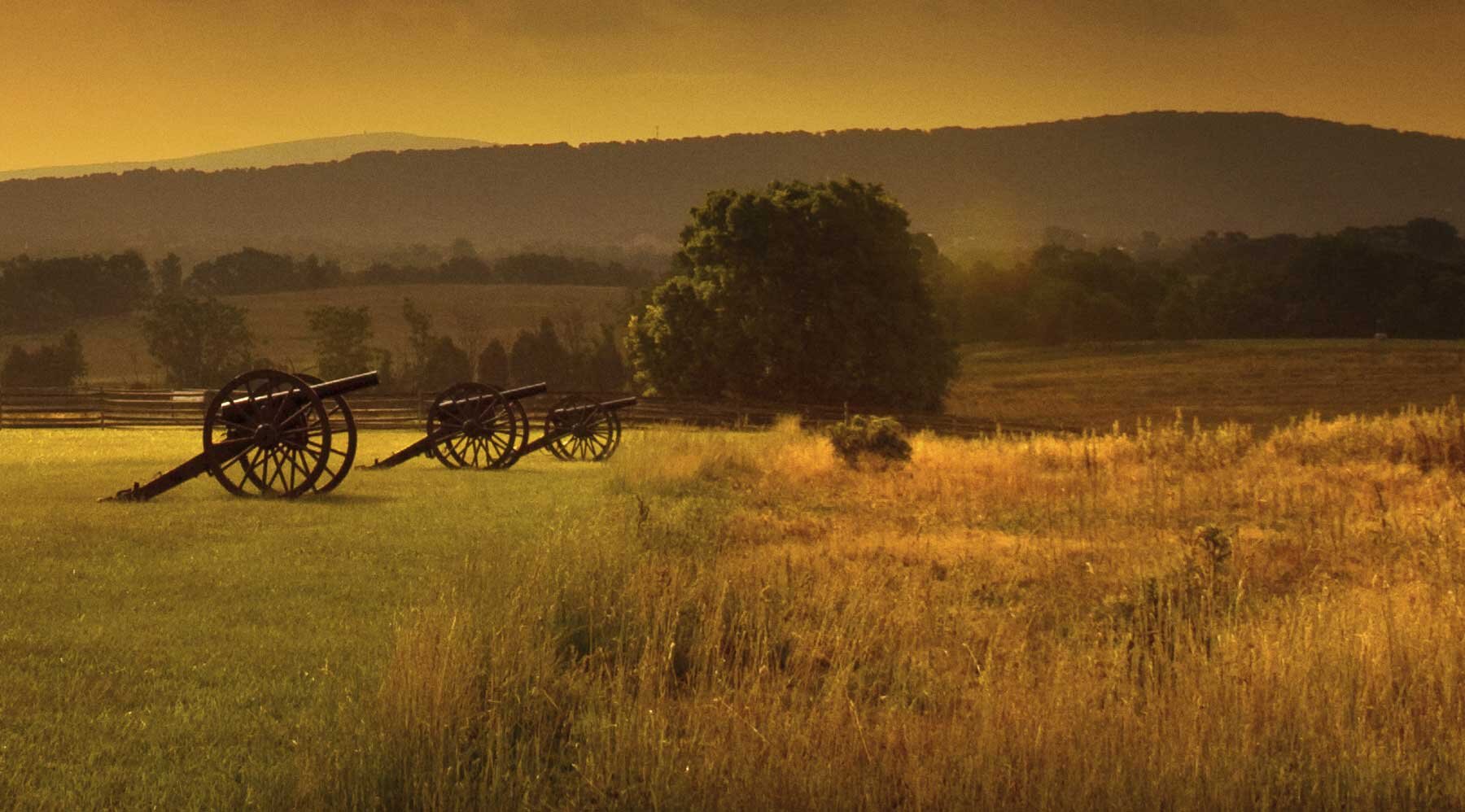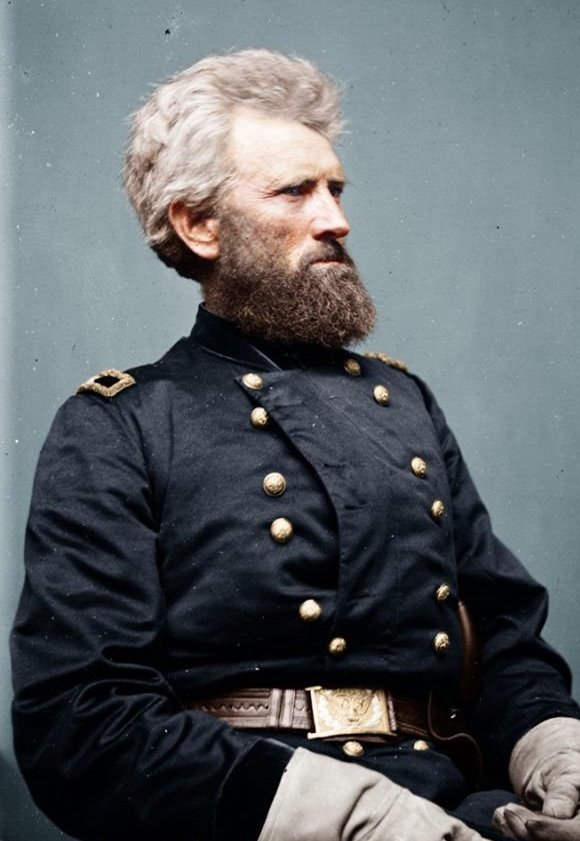
The Devil Diarists: Life in Wartime Winchester
“The men are all in the army and the women are the devils.”
Winchester was on the front lines during the Civil War. Valuable to possess, but difficult to hold, it changed hands over 70 times during the war. It was also, frequently, an occupied city – occupied by both northern and southern troops. And while the Union occupations were bitterly resented by the largely pro-Confederate citizens, occupation by southern troops was not easy either. Whether Yankee or Rebel, the influx of so many men overwhelmed the community, with the crowded conditions bringing disease, causing dire shortages of food and other goods – with resulting skyrocketing prices.
“People used to have a basket to carry their money to market in but it bought so little they could carry the provisions home in their pocketbooks.”
Union Gen. Robert Milroy had a combative relationship with the diarists during the 1863 Union occupation of Winchester
But as difficult as those conditions were, they paled in comparison with the uncertainty, fear, and despair that came with living in such uncertain times, often under the control of what residents felt was a “foreign power.” And the City was repeatedly engulfed by battle. Six major battles were fought in the Winchester area, and on several occasions the armies spilled through the streets of the city.
Fortunately for posterity, life in wartime Winchester was well-documented by a number of talented and perceptive diarists, including the famed pro-Confederate “Devil Diarists” that delighting in discomfiting the Yankee occupiers.
“The Day of Women’s Power”
During the Civil War, Winchester was an ardently pro-Confederate stronghold – led by the women of Winchester, who bitterly resisted Union occupation. After visiting Winchester, U.S. Secretary of State William H. Seward remarked that “The men are all in the army and the women are the devils.” Gen. Robert H. Milroy expressed similar sentiments: “Hell is not full enough, there must be more of these Secession women of Winchester to fill it up.” The women were the steel in the city’s resistance to Federal occupation.
“This is surely the day of women’s power; the men are afraid to do, or say, anything, & leave all to us.”
About the Diarists
Mary Greenhow Lee
Mary Greenhow Lee was the most combative and notorious of the “Devil Diarists,” and her diary provides the most detailed account of events in wartime Winchester, including the climax of the Third Battle of Winchester, where she witnessed the futile attempts by Confederate officers to rally their men. “Gen’l [John B.] Gordon & staff dashed by our door,” she recorded. “[He] seized a flag & called to the running soldiers to rally & follow him…but to little purpose.” Lee was exiled from Winchester by Union Gen. Philip H. Sheridan in February 1865.
Cornelia Peake McDonald
After the First Battle of Kernstown (March 23, 1862), Cornelia Peake McDonald visited the courthouse in Winchester, where “the porch was strewed with dead men. Some had papers pinned to their coats telling who they were. All had the capes of their great coats turned over to hide their still faces; but their poor hands, so pitiful they looked and so helpless; busy hands they had been, some of them, but their work was over.” McDonald left Winchester in July 1863.
“I have had so many startling visits, and been so often summoned to surrender my house, and so often intruded upon by rude men, that if I hear a step on the porch my heart palpitates and flutters in a way to frighten me.”
Emma Riely
Emma Riely was 14 at the start of the war. She was once strip-searched by the wife of a Union officer after returning to Winchester carrying letters. “Corset stays were thoroughly examined,” she wrote, “The shoes taken off, hands run down inside, but thank heavens they came up empty.”
Kate Sperry
Kate Sperry was 18 when she began her diary in 1861. During the Second Battle of Winchester (June 13-15, 1863), she recorded the affect when Confederate batteries opened on Milroy’s Federals. “Never heard such cannonading in all my life – [I] am afraid our town will yet be blown to atoms.” In December 1864, she married Dr. Enoch Hunt and eventually moved to Mississippi.
Julia Chase and the Unionist Perspective
Not all of Winchester’s wartime diarists were pro-Confederate; Julia Chase was a staunch Unionists whose diary provides a pro-Union counterpoint to the Devil Diarists accounts, relating how Unionists (including her father) were arrested and harassed when Confederates were in control of the city, and how she wished for the “Union army to come to our rescue.” She also recorded a day when a Mr. Griffith had his door broken down by Confederate soldiers who threatened to kill his daughter.
“[R]ebels went to Mr. Griffith’s house, broke his door open, and threatened to blow his daughter’s brains out…This is a dreadful way of living.”






